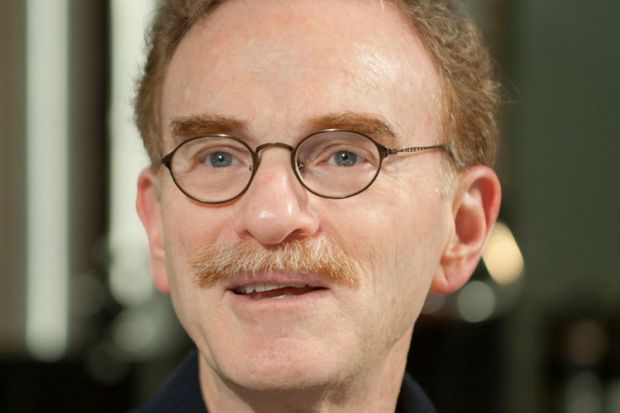Source: James Kegley / eLife Sciences Publications Ltd
Professor Schekman, co-winner of the 2013 Nobel Prize in physiology or medicine, writes in The Guardian that journals such as Cell, Nature and Science “accept papers that make waves because they explore sexy subjects or make challenging claims”.
Because of the high career rewards for publishing in such journals, scientists were influenced by their preferences, leading to “bubbles in fashionable fields where researchers can make the bold claims these journals want, while discouraging other important work, such as replication studies”.
This meant that “the biggest rewards often follow the flashiest work, not the best”.
Professor Schekman, who will receive his Nobel Prize at a ceremony on 10 December, adds that in “extreme cases the lure of the luxury journal can encourage the cutting of corners, and contribute to the escalating number of papers that are retracted as flawed or fraudulent”.
He also accuses luxury journals of “artificially” restricting the number of papers they accept, like “fashion designers who create limited-edition handbags or suits” in order to stoke demand and build “exclusive brands”.
Noting that funding and appointment panels often use place of publication as a proxy for quality of science, he questions the extent to which a high impact factor can be taken as a guarantee of the quality of papers journals publish.
“While [luxury journals] publish many outstanding papers, they do not publish only outstanding papers. Neither are they the only publishers of outstanding research,” he says.
“As a journal’s score is an average, it says little about the quality of any individual piece of research. What is more, citation is sometimes, but not always, linked to quality. A paper can become highly cited because it is good science – or because it is eye-catching, provocative or wrong.”
Professor Schekman, professor of molecular and cell biology at the University of California Berkeley, is also editor-in-chief of eLife, the open access journal recently set up by three prominent research funders, including the UK’s Wellcome Trust, as a rival to Cell, Nature and Science.
He said open access journals offered a “better way” because they “have no expensive subscriptions to promote” and can “accept all papers that meet quality standards, with no artificial caps”.
He called on funders and universities to tell their grant and appointment committees not to judge papers by where they are published. But he also encouraged scientists to follow his lead and no longer publish in luxury journals.
“Just as Wall Street needs to break the hold of the bonus culture, which drives risk-taking that is rational for individuals but damaging to the financial system, so science must break the tyranny of the luxury journals. The result will be better research that better serves science and society,” he writes.
Impact factors are calculated based on citations over the previous two years. Since eLife was only launched last year, it does not yet have one. Stephen Curry, professor of structural biology at Imperial College London, who has voiced similar concerns about the use of impact factors, tweeted that Professor Scheckman “could score another major coup by publicly committing eLife to not applying for an impact factor”.
Register to continue
Why register?
- Registration is free and only takes a moment
- Once registered, you can read 3 articles a month
- Sign up for our newsletter
Subscribe
Or subscribe for unlimited access to:
- Unlimited access to news, views, insights & reviews
- Digital editions
- Digital access to THE’s university and college rankings analysis
Already registered or a current subscriber? Login




